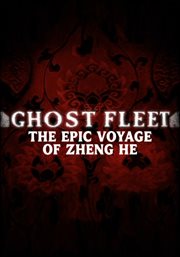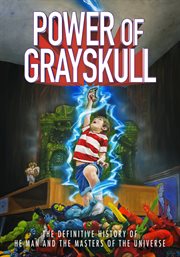Review by Booklist Review
Fifteen years ago, Toronto-based artist Zhang debuted Red Land Yellow River (2004), a gorgeous, hauntingly rendered autobiography about coming-of-age during China's Cultural Revolution, marked by incomprehensible, chaotic, threatening change. The beloved father he introduced then becomes the subject in this book, its title a reference to the Yellow River Cantata, a renowned eight-part patriotic Chinese song cycle with lyrics written by Zhang's father. Best known as Guang Weiran (1913-2002), he used a dozen-plus names to escape dangerous situations throughout his eventful life during China's turbulent twentieth century. The revolutionary poet's greatest weapon was his writing: In the wild power of the Yellow River the symbol of Chinese civilization, Zhang explains he saw the great courage of the Chinese people. His iconic cantata would take its own tumultuous journey from celebrated to banned to revered once again. Combining antique photographs with affecting black, white, and red sketches, Zhang presents his father's life infused with admiration and beauty. While never eliding tragic details relentless danger, fatal violence, political fallout Zhang presents his father's difficult decades with subtle control, ensuring younger readers an age-appropriate introduction to major historical events. Golden colors make the latter pages glow with the English-language presentation of the cantata, followed by the original Chinese print. Zhang's intimate gift honoring his late father becomes a revelation for new audiences.--Terry Hong Copyright 2019 Booklist
From Booklist, Copyright (c) American Library Association. Used with permission.
Review by School Library Journal Review
Gr 4--7--In early 1939, during the Second Sino-Japanese War, a suite of lyrical short poems by Guang Weiran (a celebrated pen name) was set to music by his friend Xian Xinghai. Guang's artist son has created this stirring, streamlined account of his father's life and work, centered on the cantata's creation, with photographs and many of Zhang's bold woodcut-like illustrations (enlivened by touches of crimson). A precocious student and writer, the 12-year-old Guang was moved to revolution by foreign abuses of the concession system. He became a Communist Party member (though abjuring allegiance during Nationalist suppression). Leading an anti-Japanese guerilla theater troupe, Guang crossed the Yellow River on his 25th birthday. The resulting cantata found instant success as an expression of love for the Mother River and the motherland--though banned during the Cultural Revolution, it was embraced again after it. All eight movements of the cantata, in a spirited English translation (by Andi Zhang) against fluid molten-gold river backdrops (contrasting with the more austere earlier illustrations), then the original Mandarin, follow Zhang's concise but warm biographical narrative. The musical score does not appear. Young readers' notions of communism may be enriched by the references here to its historical rise and the patriotism of those who fought for China. VERDICT Succinct history, an inspiring personal story, clear language, and engaging artwork make this volume an appealing choice for middle school readers.--Patricia D. Lothrop, formerly of St. George's School, Newport, RI
(c) Copyright Library Journals LLC, a wholly owned subsidiary of Media Source, Inc. No redistribution permitted.
Review by Kirkus Book Review
To commemorate the 70th anniversary of the end of the second Sino-Japanese War, Zhang writes about his father, Guang Weiran, the author of a poem that inspired and became the lyrics for the Yellow River Cantata.The piece is a patriotic song made famous as a rallying cry throughout China against the Japanese invasion. Despite controversy that included a ban for several years, it is now played in concert halls around the world. The main focus of this book, however, is the life of Guang Weiran, the author of the famous lyrics and a military officer overseeing theatrical troupes trained to both perform and fight. Born in the Hubei province, Weiran was a gifted student, his politicization beginning at the tender age of 12 after learning of the May 30 massacre, in which student protests were met with violence by the British police who controlled the area. Weiran gets his start speaking at demonstrations, later becoming involved with the Chinese Communist Party. As an adult officer leading his troupe, he is inspired by the power of the Yellow River, known as the mother river of China. Soon after sustaining a broken arm, he pens the 130-verse poem within five days. Digital, woodblock-inspired black-and-white illustrations with highlights of red visually narrate his journey. Maps, photos, and footnotes provide guidance through the complex politics and shifts in power that affect his life. The complete Yellow River Cantata follows, provided in both English and Simplified Chinese.An informative resource rich with mixed-media visuals. (Biography. 10-13) Copyright Kirkus Reviews, used with permission.
Copyright (c) Kirkus Reviews, used with permission.


